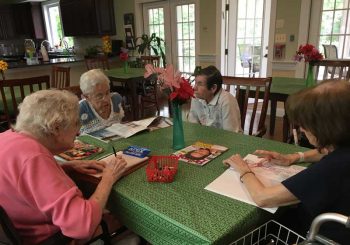
According to new research from the Johns Hopkins Bloomberg School of Public Health, public engagement and civic activity helps the memory center in aging brains maintain its size and in some cases even grow larger. This new research recently appeared in Alzheimer's & Dementia: The Journal of the Alzheimer's Association and was drawn from a study of a Baltimore based program that matches retirees with young people in public schools to act as reading mentors. At two years in length, this...
Read More
Read More









